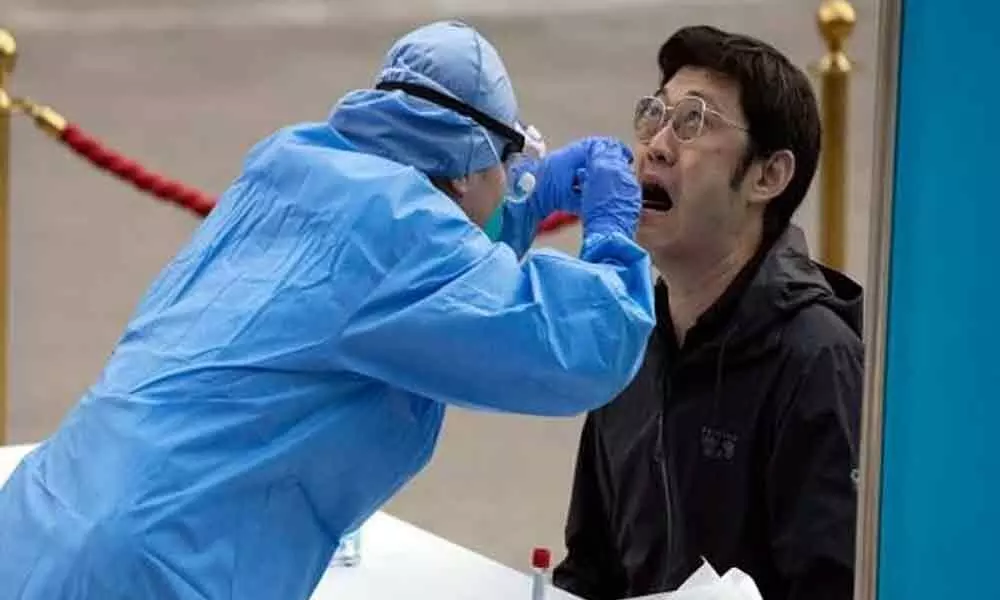Corona may never go away, even with a vaccine, warn experts
 A medical worker collects a swab sample from a journalist before the National People's Congress closing session and the Chinese Premier press conference in Beijing.
A medical worker collects a swab sample from a journalist before the National People's Congress closing session and the Chinese Premier press conference in Beijing.Washington: There's a good chance the coronavirus will never go away. Even after a vaccine is discovered and deployed, the coronavirus will likely remain for decades to come, circulating among the world's population. Experts call such diseases endemic - stubbornly resisting efforts to stamp them out. Think measles, HIV, chickenpox.
It is a daunting proposition - a coronavirus-tinged world without a foreseeable end. But experts in epidemiology, disaster planning and vaccine development say embracing that reality is crucial to the next phase of America's pandemic response. The long-term nature of covid-19, they say, should serve as a call to arms for the public, a road map for the trillions of dollars Congress is spending and a fixed navigational point for the nation's current, chaotic state-by-state patchwork strategy.
With so much else uncertain, the persistence of the novel virus is one of the few things we can count on about the future. That doesn't mean the situation will always be as dire. There are already four endemic coronaviruses that circulate continuously, causing the common cold. And many experts think this virus will become the fifth - its effects growing milder as immunity spreads and our bodies adapt to it over time.
For now, though, most people have not been infected and remain susceptible. And the highly transmissible disease has surged in recent weeks even in countries that initially succeeded in suppressing it. Left alone, experts say, it will simply keep burning through the world's population.
"This virus is here to stay," said Sarah Cobey, an epidemiologist and evolutionary biologist at the University of Chicago. "The question is, how do we live with it safely?" Combating endemic diseases requires long-range thinking, sustained effort and international coordination. Stamping out the virus could take decades - if it happens at all. Such efforts take time, money and, most of all, political will.
Americans have only started to wrap their heads around the idea, polls show. U.S. leaders and residents keep searching for a magic bullet to bring the pandemic to an abrupt end: Drugs that show even a hint of progress in the petri dish have sparked shortages. The White House continues to suggest summer's heat will smother the virus or that it will mysteriously vanish. A vaccine - while crucial to our response - is not likely to eradicate the disease, experts say. Challenges to vaccination are already becoming clear, including limited supply, anti-vaccine opposition and significant logistical roadblocks.
Meanwhile, some states are rushing headlong into reopening their economies. Even those moving more cautiously haven't developed tools to measure what's working and what isn't - a crucial feature for any prolonged scientific experiment.
"It's like we have attention-deficit disorder right now. Everything we're doing is just a knee-jerk response to the short-term," said Tom Frieden, former director of the Centers for Disease Control and Prevention. "People keep asking me, 'What's the one thing we have to do?' The one thing we have to do is to understand that there is not one thing. We need a comprehensive battle strategy, meticulously implemented."
People keep talking of returning to normal, said Natalie Dean, a disease biostatistician at the University of Florida. But a future with an enduring coronavirus means that normal no longer exists. "As we find different ways to adapt and discover what works, that's how we're going to start reclaiming parts of our society and life," she said.














